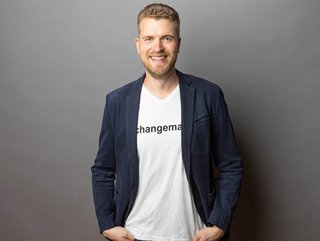ecolytiq: Banks “miles away” from sustainability targets

FinTech Magazine speaks to David Lais, Co-founder and Managing Director of ecolytiq – the fintech providing financial institutions with carbon tracking tools to help consumers make environmentally conscious decisions when purchasing goods and services.
Lais discusses the significant role leading banks have continued to play in climate change, what they must do to correct course and why, at present, banks are far behind in achieving their sustainability goals.
What role does the banking and financial services sector play in mitigating and counteracting the climate crisis?
For decades, banks have played a significant role in contributing to climate change - providing loans, insurance and other financial services to the fossil fuel companies responsible for a vast amount of the damage we see on our environment today.
And yet, banks are in one of the best positions to make considerable progress and set in motion climate engagement and real action at a global scale.
Money is the fuel and the not-so-secret ingredient that underpins the climate transition, and no one is better positioned to influence the flow of funds than banks, credit unions and other financial institutions.
In addition to shifting their focus to control their own direct, financed and facilitated emissions, the sector can play an even bigger part, acting as a global catalyst for consumers' climate literacy, carbon numeracy, and climate action at scale.
Financial institutions have a unique medium to engage credibly and persuasively with over 76% of the world’s population (all the world’s “banked population”) and provide them with clear insights on their individual, personal carbon footprints based on transaction data, and more: suggested climate actions.
If rooted in accurate, credible carbon calculations, and in proper, peer-reviewed, scientific-based insights, these can set in motion the radical change and the climate engagement that the world needs with urgency.
Whilst we are seeing the beginnings of banks making some change - across Scope 1, 2 and 3 emissions with some international banks having made commitments to become net zero by 2050 or sooner - there is no doubt we’re still miles off where we want to be at this point.
The biggest opportunity for action is when it comes to actively directing investment strategies to greener products and industries or increasing the sustainable finance products they offer to their own customer segments.
However, despite such progress, we still have a long way to go in terms of transparency needed from the banking industry.
A recent report from the Transition Pathway Initiative Global Climate Transition Centre found that only five of 26 global banks had disclosed the quantitative results of climate scenario analyses to shareholders and clients, and only six banks have disclosed a commitment to immediately end all on and off-balance sheet finance for new coal capacity.
What are the opportunities and challenges financial institutions face when it comes to engaging with customers on climate change?
There is no doubt climate anxiety is rising. One in three young people in the UK currently feel pessimistic or overwhelmed by the climate crisis.
And yet, there is a clear gap between the increasing number of customers who want to take climate action and the number of banks providing these kinds of tools and services.
Research by our partner Tink reveals that 40% of people surveyed in the UK want their bank to offer tools to help track their environmental impact, yet only 24% of banks currently offer such services.
Of course, this presents challenges for banks, but it also unlocks huge opportunities that are yet largely untapped. Consumers are increasingly demanding that their bank provide them with more climate action products that cover the entire sustainability value chain.
Banks can deepen and reinvigorate customer engagement, gain the trust of new generations of consumers, and unlock new revenue streams that will improve commercial resilience for the next decade. All this is achievable by pursuing climate engagement.
49% of global consumers say they would consider switching from their current financial service provider to another bank or financial institution if they had a strong commitment to sustainability.
That’s a number financial institutions can’t ignore. Ultimately, as awareness grows around the existence of green banking tools, so too, will pressure on banks to act. If not from their customers, the pressure will come from regulatory bodies, investors and even employees.
How can data be leveraged to promote climate engagement across the financial sector?
The next frontier for the market is for a whole-scale adoption of “radical transparency”, illustrating a deep commitment to honesty and integrity around sustainability.
Access to high-quality, reliable data is and will continue to be the fuel needed to action monumental change.
Data is the currency of the future. Right now, the sustainability transformation is roaring ahead but not at full speed. How transparent and available that data is will determine how fast and how far we go.
What we’re facing in the market at the moment is a complete lack of a standardised framework that works at scale. Some progress is being made on the legislative front and I applaud it.
It’s just not at the speed the climate is changing. Delivering credible and effective engagement on climate requires earnestly working with robust data, and a lack of transparency is drastically slowing this progress and even stopping us from all working towards the same goals.
At ecolytiq, we say “data sharing is climate caring”. We need to collaborate globally to start sharing environmental data to really build a transparent supply chain. My Scope 1&2 emissions are someone else’s Scope 3, and the other way around.
I have a need to know and I have something to give - the principle is clear but we need to break the barrier and make sure we really make this data publicly and freely available.
We need open standards for measuring carbon footprints and climate impact, to enable everyone to move away from fuzzy calculations that undermine credibility and hinder climate action.
Transparency is a public good that helps everyone make better decisions, so the question is “Will you be the example?”
What regulatory shifts are currently shaping this landscape?
In the EU, the Corporate Sustainability Reporting Directive and Corporate Sustainability Due Diligence Directive are two of the key initiatives bringing transparency into companies and their supply chains.
The US is also making considerable moves in this space, SEC has laid forward its climate disclosure proposal showing promise in a market with great potential for emissions reductions. Regulation is moving in the right direction, and it’s an encouraging sign.
How can climate engagement solutions foster commercial growth for the financial sector?
Sustainable banking is an incredible opportunity for banks to take a leading role. Customer demand for climate action is there, and the financial services industry can channel it into business growth.
One crucial hurdle here to recognise, however, is that banks cannot just simply stop at carbon footprinting and call it a day.
Climate engagement needs the entire sustainability value chain - from awareness of personal impact, to engagement with climate education, and action through investment and carbon credits. There is a social responsibility to go beyond providing just “awareness”.
That’s why at ecolytiq, our mission is deep-rooted in providing actionable insights for banks, empowering them to provide the transaction transparency needed for consumers to make real changes in their daily lives.
Where does ecolytiq see the fastest adoption for climate awareness and climate engagement solutions?
Since our founding in 2020, we've seen drastic shifts in both the awareness and adoption of climate engagement solutions - both from a consumer and bank point of view. At the start of our journey, the question we asked ourselves was if climate engagement is something customers want.
Now, it’s a matter of when. We’ve seen throughout our research that individuals largely want to engage in more sustainable consumption but often face various emotional, behavioural, or capacity-related barriers to consuming sustainability (this is known as the Intention-action gap).
When it comes to regions' adoption of climate awareness, we’ve seen Europe remain a steady leader in this department, especially when it comes to sustainable banking, however, the US has been making considerable strides as they look to improve their sustainable offering. We are also seeing banks in the Middle East, especially in the lead-up to Cop28.
For us, the next step is to see the biggest banks take real strides in their efforts towards sustainability and climate engagement.
We’re seeing a lot of newer neobanks and fintechs lead the charge here, but now even the biggest tier-one banks are realising the business value of providing sustainable solutions to their customers.
But whilst we’re optimistic about the current rate of adoption, we undoubtedly want to see more. For consumers, it’s about taking more climate action. For banks, it’s about offering their customers the means to do so. We’re seeing the world talk the talk. Now it’s time to walk the walk!
******
For more insights from FinTech Magazine, you can see our latest edition of FinTech Magazine here, or you can follow us on LinkedIn and Twitter.
You may also be interested in our sister site, InsurTech Digital, which you can also follow on LinkedIn and Twitter.
Please also take a look at the playlist for our latest hybrid event, FinTech LIVE London, to learn all about the latest trends in fintech.
******
BizClik is a global provider of B2B digital media platforms that provides executive communities for CEOs, CFOs, CMOs, Sustainability Leaders, Procurement & Supply Chain Leaders, Technology & AI Leaders, Cyber Leaders, FinTech & InsurTech Leaders as well as covering industries such as Manufacturing, Mining, Energy, EV, Construction, Healthcare, and Food & Drink.
BizClik – based in London, Dubai, and New York – offers services such as Content Creation, Advertising & Sponsorship Solutions, Webinars & Events.
- DailyPay, Digital Onboarding Raise Funds; is VC on the up?Venture Capital
- World Bank CEOs in Private WEF Fintech, Global Economy TalksBanking
- Finastra Partners With Databricks for Gen AI-led SolutionsFinancial Services (FinServ)
- Boston Consulting Group: How Banks can see Valuations SoarBanking







